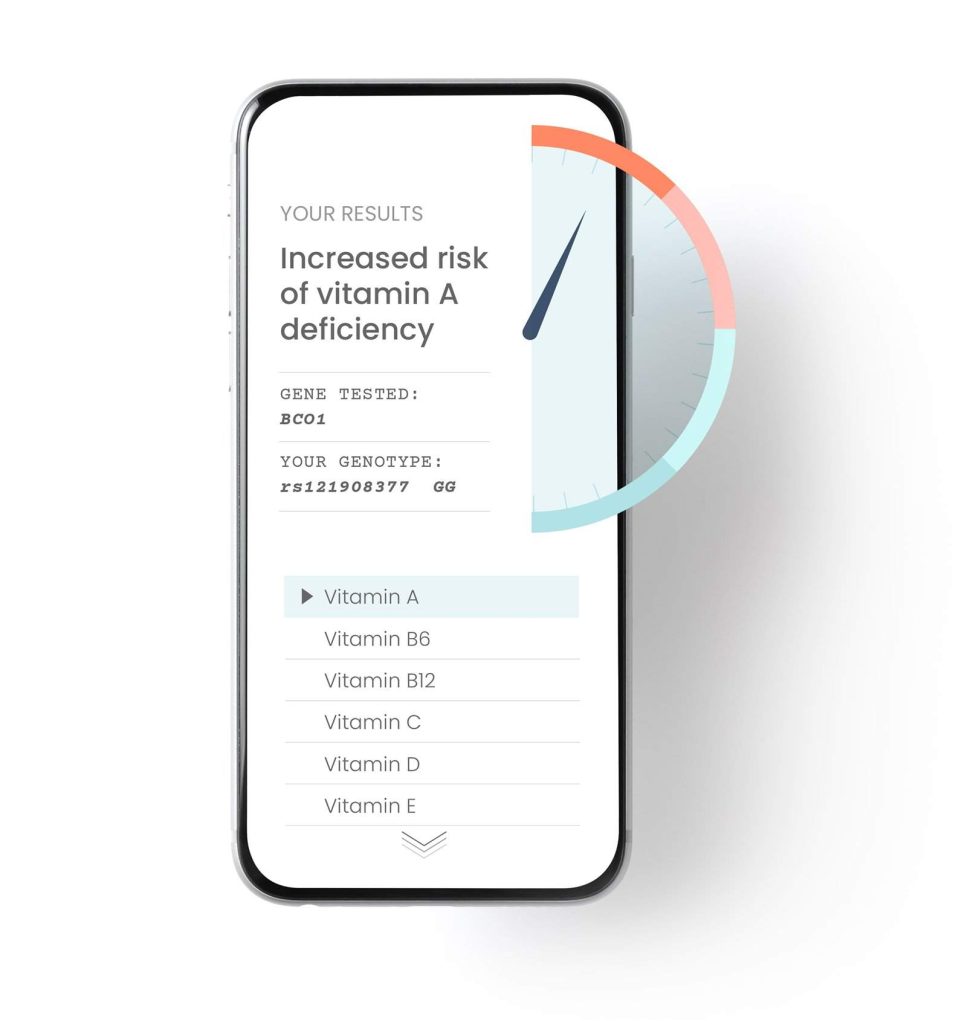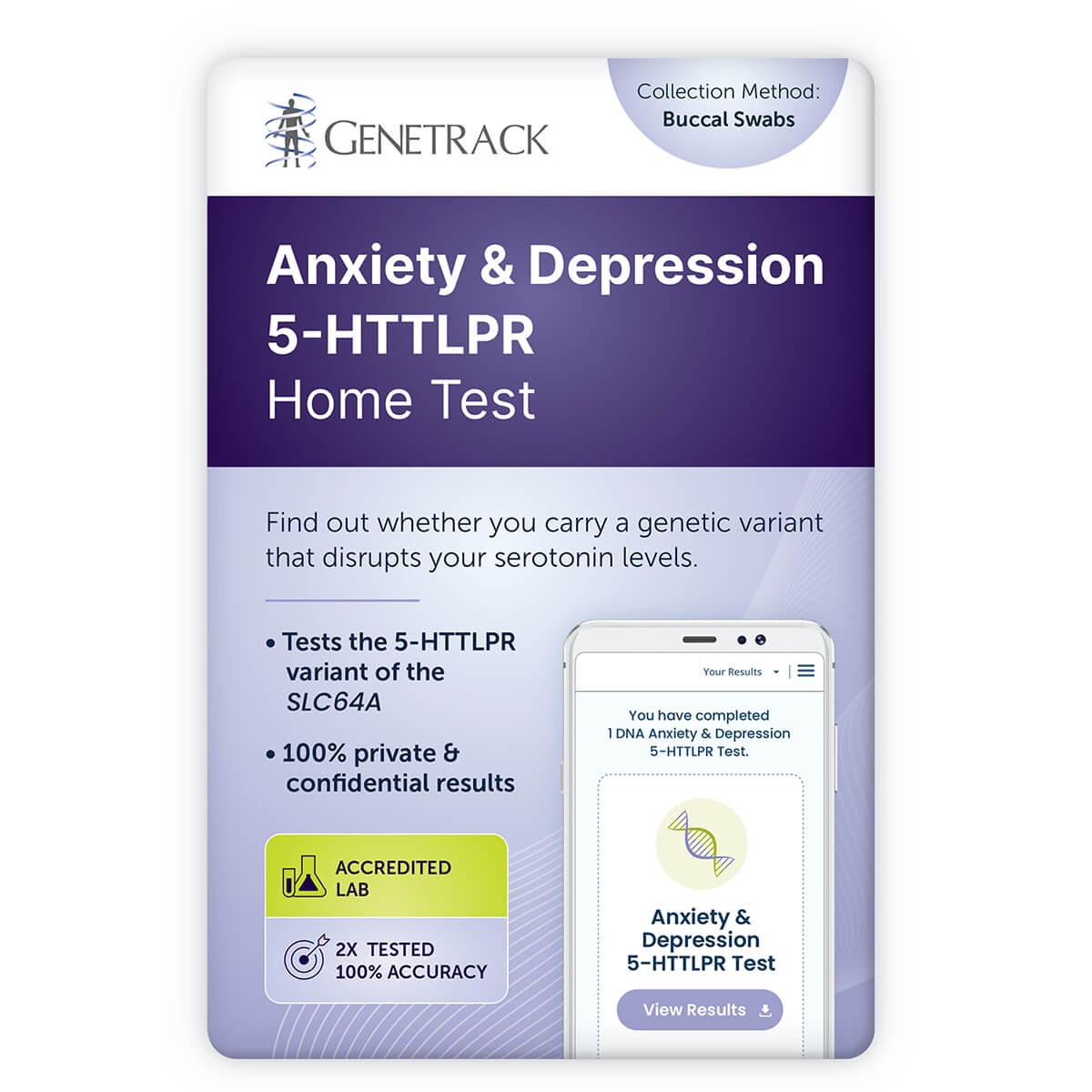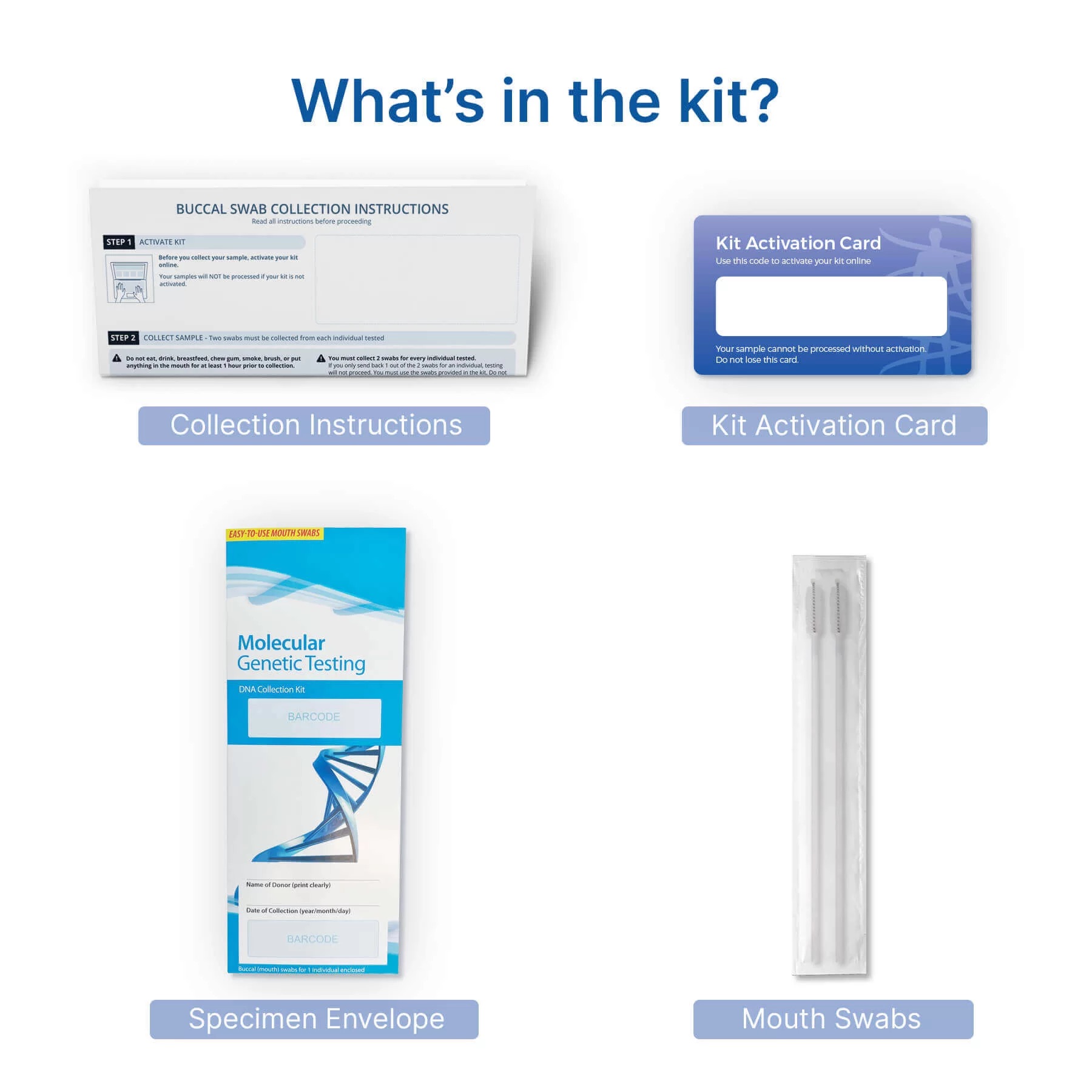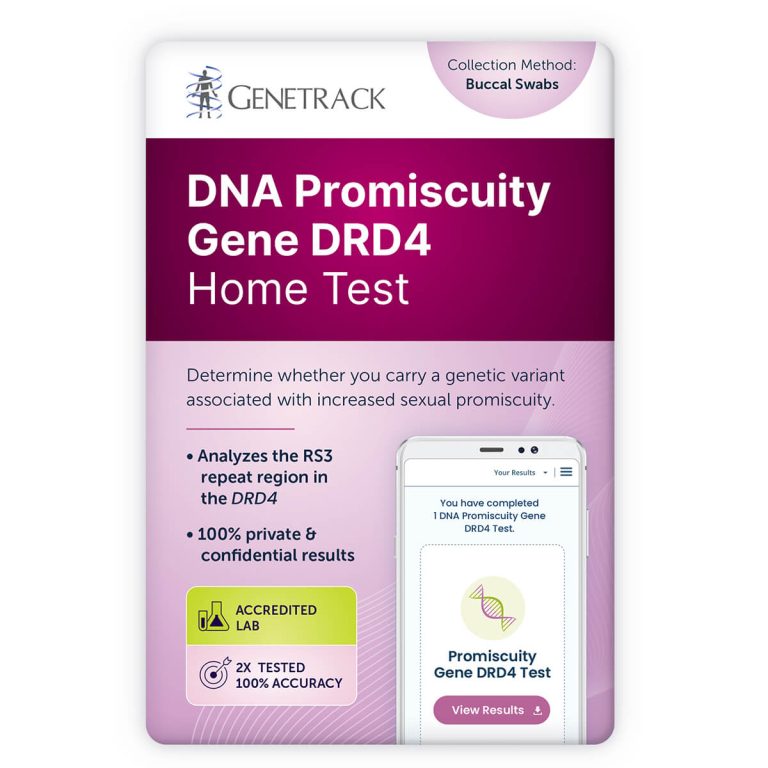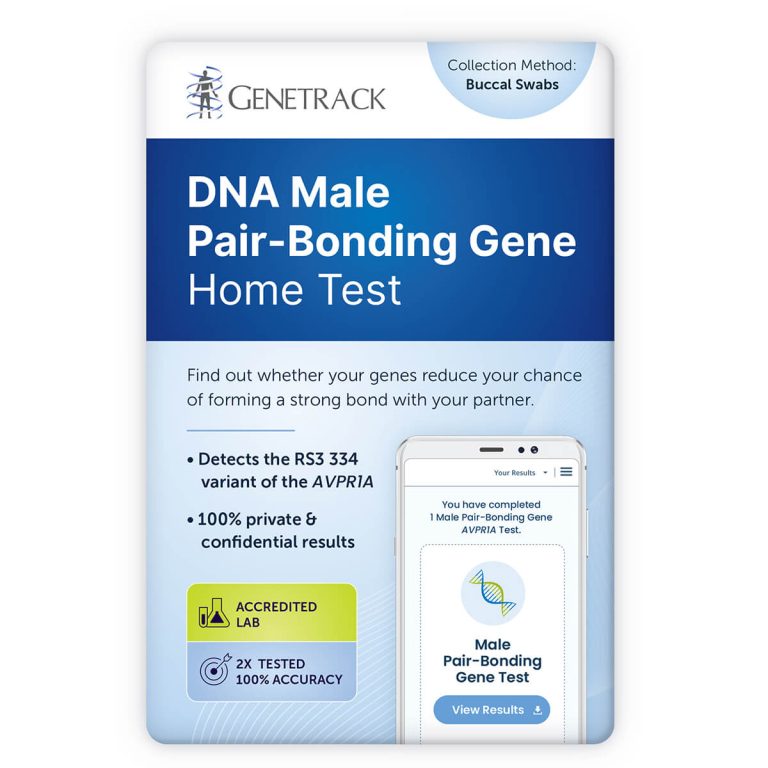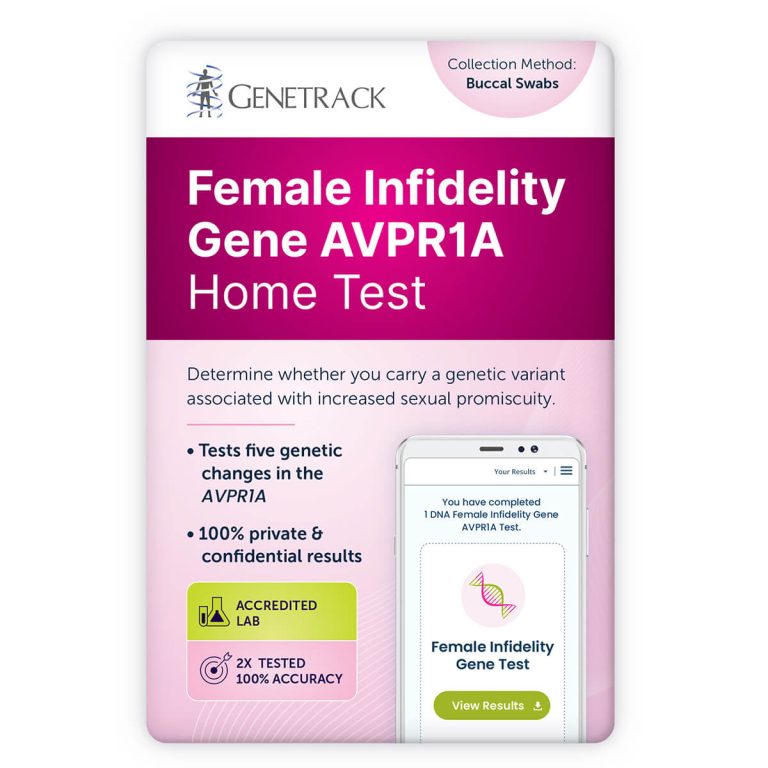Anxiety & Depression DNA Test
Determine if your genetics influence your serotonin balance.
Do you come from a family with a history of depression? Take this DNA test to uncover whether you have the “grouchy” gene, a genetic variant linked to changes in serotonin levels and an elevated risk of anxiety and depression.
- Detects the 5-HTTLPR variant of the SLC64A gene
- People with the “grouchy” gene have an increased risk of sad feelings, depression and anxiety
- The “grouchy” gene may decrease your response to antidepressants
- 100% private and confidential online results
$149.00
Fast, Convenient, Painless
What is serotonin?
Serotonin is a neurotransmitter in the brain that plays a significant role in regulating mood, emotions, and sleep. When we’re feeling happy or relaxed, it’s often because our brain has a good amount of serotonin flowing around.
What is the serotonin transporter?
The serotonin transporter is a protein that controls the levels of serotonin in the brain. It makes sure that serotonin is recycled efficiently so that our brains can use it again when needed.
What is the SLC6A4 gene?
The SLC6A4 gene contains the instructions for creating the serotonin transporter. Variations in this gene can can change the amount or the activity of the serotonin transporter. This can, in turn, influence a person’s risk of developing mood disorders or impact how they respond to certain medications.

What is the “Grouchy” Gene?
The S-allele, often called the “grouchy” gene, is a variation of the SLC6A4 gene found in the gene’s 5-HTTLPR region.
People who have the S-allele produce less of the serotonin transporter. This impacts brain areas tied to emotions, resulting in an increased susceptibility to feelings of sadness and irritability.
Conditions Linked to the “Grouchy” Gene (S-allele)
The S-allele, often referred to as the “grouchy” gene, is primarily associated with feelings of unhappiness. Additionally, research has linked it to:
- Anxiety related behaviour and stress response
- Antisocial behaviour
- Impulsiveness
- Attention deficit disorder
- Psychological disorders such as autism, depression, bipolar disorder
- Addictive behaviour
- Sudden infant death syndrome
- Response to antidepressants
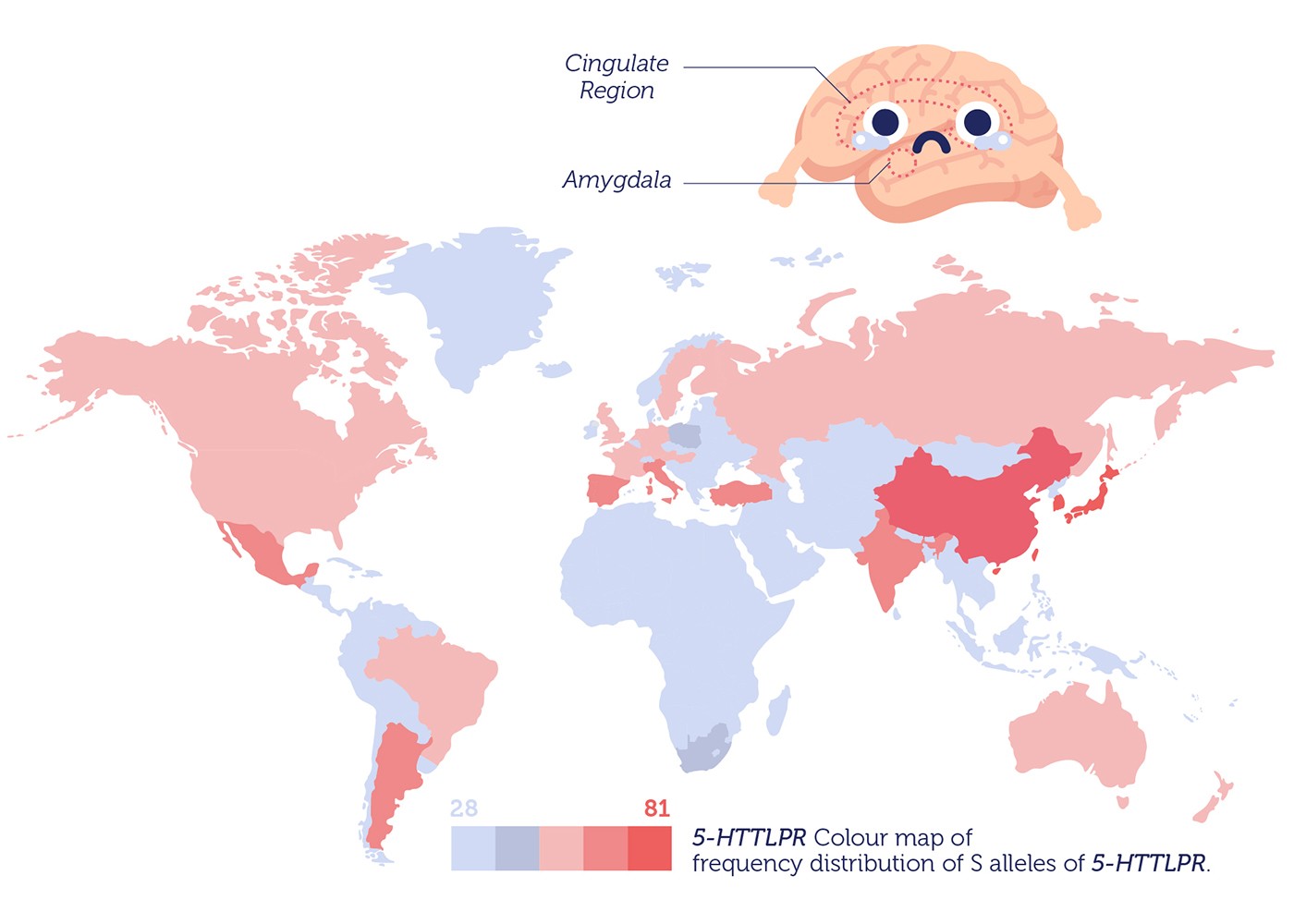
The Genetics
This DNA test examines the 5-HTTLPR region of the SLC6A4 gene to identify if you carry the short (S) or “grouchy” form or the long (L) versions of the gene.
Variants Tested
The SLC6A4 gene is found on chromosome 17. Since we inherit chromosomes in pairs – one from each parent – every individual carries two copies of the SLC6A4 gene. Carrying one or two S-alleles increases the likelihood of experiencing anxiety and depression.
- People with two short (S) copies have a higher likelihood of unhappiness. They will pass a copy of the “grouchy” gene to all of their children.
- People with one short (S) and one long (H) copy can also have altered levels of happiness. They have a 50% chance of passing the “grouchy” gene to all of their children.
- People with two long (L) copies face a lower risk of unhappiness and depression.
How Home DNA Testing Works

Order Test Kit
From relationship tests to health tests, we offer a wide range of DNA tests to fit your needs.

Collect & Ship
Simply collect DNA with our easy-to-use swabs in the comfort of your home.

Receive Results
Access your confidential results online the moment testing is completed. Our team of experts is available for any questions.
Secure & Confidential Online Results
